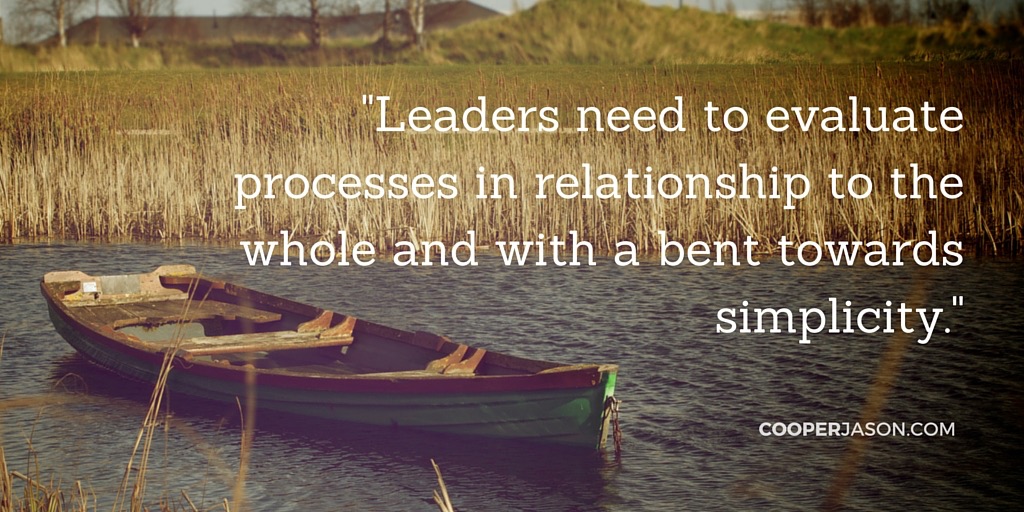Do you hate unnecessary steps in processes? I do.
Years ago I inherited my grandfather’s boat and trailer from my father. It wasn’t much, just a twelve foot Jon boat on a used trailer. But both the trailer and the boat are considered “vehicles” and therefore have to be registered with the state via my local county office. I knew that the trailer would have to be licensed and fortunately I had the out of state title that had been signed over to me by father who had carried the license in the years before I inherited the boat.
But what about the boat? It was a small boat, and as such, didn’t necessarily need a title as long as I didn’t put a motor on it. I could still register it without a title. But add the motor, and you need a title. Who wants to row around while they are trying to fish? So I went to the county to register and title my boat and trailer. I found out quickly that I could not title the boat without proof of ownership. There was one problem, as the boat was from another state that didn’t require a title, I had none. And I had no bill of sale since I had inherited it.
So I went home disappointed. I called my dad and we came up with a plan to create a bill of sale from him to me and he sent me all the documents he had including the original receipt from Sears in 1983 when my grandmother purchased the boat for grandpa. Back to the county building I went.
But I hit another wall. My well-hatched plan did not satisfy the county worker because none of the documentation established my dad as the owner, and therefore the bill of sale meant nothing. All the documents I had listed either my deceased grandmother or deceased grandfather, not my father. But then something interesting happened.
The worker at the counter asked if I intended to put a motor on it. I said that I had a small electric motor that came with the boat and I planned on using it. He then explained that if I didn’t put a motor on it I could go down the hall a little ways and register the boat, without a motor, thereby establishing myself as the owner according to the state. I didn’t need a title to simply register the boat due to the class of vessel it falls into based on size. Then, once I had registered it, I could come back to the title window and apply for a title because at that point I would have legal proof of ownership. I was elated…and just a bit annoyed. Why didn’t the worker at the counter the first time explain this loophole to me?
The Trouble with Processes
As organizations grow, they tend to develop complicated rules and procedures and policies that don’t always make sense. In the case of county government it seems we simply have to live with it, but in the organizations that we lead we have a choice!
Loopholes exist when processes and policies become isolated and complicated. Leaders need to evaluate processes in relationship to the whole and with a bent towards simplicity.
5 Steps Leaders Can Take
- Evaluate and streamline processes at least annually. Don’t just let things run indefinitely. Most organizations evaluate employees regularly, why not add processes to that list?
- Eliminate unnecessary steps. Times change which means needs change which means processes will change. Don’t hold onto steps that are no longer necessary.
- Involve the people who live and breathe that workflow as they will see the issues. Thank goodness for the county worker who pointed out the loophole!
- Clarify a new process and test it, making any necessary adjustments. Version 2.0 may be better, but it may version 2.7 that nails it.
- Rinse and repeat.
4 Reasons You Might Adjust A Process
- Increased trust in an employee. As an employee proves herself, you may, for example, want to raise the dollar amount she can spend without prior approval.
- Changing circumstances. Do we still need to file paper copies or are digital records sufficient? Do you still use the same communication channels? What adjustments do you need to make as you adopt a new technology or hire a new position or change a product line?
- Trimming the fat. Are there things you started doing in the past that aren’t paying off? Are there processes that don’t really accomplish what they intended to accomplish? Are there things that have been added that don’t really contribute to the big picture?
- Keep the main thing the main thing. Sometime adjustments need to be made not because the process is extraneous or doesn’t bring some value, but because it has veered from the main purpose of your organization or business. If a process doesn’t contribute to the overall vision and mission in a meaningful way, it should be discontinued.
– How about you? Do you have a story of an outdated process that needed fixing? Or a story of a process that people no longer knew why it existed?






